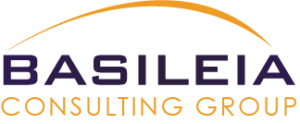Large corporations have long recognized the advantages of modern, cloud ERP solutions for professional services businesses. Substantial efficiency gains occur when you combine formerly separate company-wide procedures into a single system for “one version of the truth.”
As a result of digitizing, simplifying, and automating business operations, all departments can work together seamlessly, freeing up time and reducing expenses for the organization.
Global business processes have altered because of the internet. Service-oriented solutions are becoming more and more relevant in the current technology landscape since product-driven consumption paradigms no longer rule the commercial marketplace.
A modern cloud-based ERP for professional services enables businesses to optimize operations, support growth, and boost profits by utilizing cutting-edge tools and trends.
What is ERP in the cloud?
Utilizing integrated cloud-based ERP platforms, small and midsize enterprises can enjoy the same benefits of linked business as larger corporations.
In contrast, most small and mid-market businesses (SMBs) operate their enterprises using a combination of disconnected point solutions, accounting software, multiple spreadsheets, and manual methods. Processes get more complex when an organization expands, and it may start to compete globally and expand into new markets. Huge successes can quickly become enormous difficulties without a robust and trustworthy technology base, and ambitious organizations may crumble under pressure.
A platform for cloud-based ERP for professional services SMBs
Leaders at fast-growing companies typically outgrow their accounting software in a year or two. They understand that an ERP platform will enable them to manage their entire organization better, increase cash flow, expedite reporting, and simplify regulatory compliance.
The good news is that during the past few years, technological advancements and software-as-a-service models have eliminated the traditional cost and complexity obstacles associated with ERP that prohibited smaller businesses from investing in intelligent ERP. These models transfer ERP into an OPEX budget.
By updating your operational infrastructure, ERP for the professional services sector increases value. Modern Software-as-a-Service (SaaS) platforms provide cloud ERP solutions that let you improve your back-end and front-end operations to build a completely integrated, well-coordinated system.
By implementing current software solutions, professional service companies can restructure their various activities and combine their operational processes into a single machine.

Five key advantages of implementing a modern cloud ERP for professional services:
1. Adaptability, Scalability, and Flexibility
The capacity to address particular pain points is a prerequisite for value delivery in professional service solutions. Service providers must be able to resolve these issues to efficiently provide their client’s ROI, regardless of whether a project must be finished within a set schedule or stick to a set budget. Because of this, ERP for professional services must be flexible enough to adapt to different circumstances while maintaining the same functionality.
Cloud ERP systems offer built-in flexibility regarding application and deployment options and expanded real-time data access. Modern cloud ERP systems for professional services allow you to scale your solution according to your growth rather than letting your software determine how quickly you grow.
With the help of SaaS software solutions, you can conduct business across international borders without suffering any productivity losses, thanks to features like built-in databases on numerous currencies and languages.
2. Operations Observation
Businesses in this industry sector benefit from having a reliable “single source of truth” for their operations thanks to ERP. Cloud ERP systems link data streams from many silos to provide a precise overview of ongoing activities. Comprehensive SaaS software helps you gather and analyze data from all areas of your business by combining numerous applications into a single system.
With cutting-edge professional services management software, cloud ERP solutions allow you to continually monitor costs, revenues, and human resources to ensure exact operational management. As pertinent data is collected, reporting tools in contemporary cloud ERP packages produce thorough updates on project finances, scheduling, and other dynamic parameters. These features enable you to make informed business decisions based on detailed reporting of your operations by capturing and delivering the data you require on demand.
3. Interaction with Teams, Suppliers, and Clients
Since traditional means of engagement had traditionally walled off business units and client groups, modern professional services management software enables immediate, seamless communication between them. Communication between clients and staff in locations separated by great distances and national and international borders becomes simple.
The constant communication cloud ERP for professional services between your internal and external operations’ siloed divisions facilitates the immediate two-way transfer of crucial data, ensuring the continual value supply.
Modern cloud ERP solutions provide new forms of connection and let you integrate back-office activities with front-end customer relationship management (CRM) procedures and other forward-looking chores through the use of remote and mobile applications.
Support and customer service data is supplied in real-time to enable quicker responses to client inquiries and enable immediate connection with key stakeholders as needed. To fully manage client lifecycles, comprehensive reporting functionality provides an integrated view of your front-end touchpoints.
4. Accounting and Reporting
To manage and keep all pertinent data on your company’s transactions from inside a unified framework, modern accounting software for professional service organizations gives enhanced fiscal reporting for every function connected to your ERP system.
Improved data distribution from decentralized sources provides precise financial tracking metrics for your entire organization. You can guarantee accurate revenue and cost management across your value chain by having a complete, consistent view of all your financial data that is gathered and delivered on-demand.
Cloud-based project accounting software gives you continuous access to regulatory updates to achieve compliance immediately.
Data is recorded in real-time to create detailed invoices for each project and keep track of billable hours per employee timesheet. By utilizing cloud accounting capability, financial reporting elements in contemporary ERP packages provide financial statements that are more precise.
5. Automation
By reducing time and money expenditures, user error, and other inefficiencies, eliminating manual processes accelerates operations. You can optimize budgetary chores and guarantee accurate financial statements for each assignment with the help of automated project accounting and professional services resource management software. Thanks to user-defined data fields, you can keep track of your deliverables and generate thorough reports for each one.
Cloud ERP systems streamline project lifecycles with service automation software, promoting teamwork while on assignments. You may monitor project status in real-time using the project management tool, and you can recognize and respond to circumstances as they arise with speed and accuracy.
Marketing, sales, and finance are other automation capabilities that allow you to coordinate each business unit’s operations with your corporation’s primary goals. With the help of these technologies, you may track and maintain all client lifecycle phases and complete deliveries by specific timeframes.
Regardless of the company’s size, organizations cannot overcome the problems of today and tomorrow with the methods of yesterday. SMBs might consider a modern ERP platform that will offer the process efficiencies enjoyed by larger competitors. It also provides data-driven insights and agility for expansion and innovation to continue growth in a controlled manner.
Ready to take your business to the next level?
Contact Basileia Consulting Group (BCG) by calling 949-329-3524 or via our contact form so we can get acquainted and start you on the road to superior cloud ERP with Microsoft Dynamics 365.
Related Posts
Looking for an Outstanding Microsoft Dynamics ERP Partner? Meet Basileia!
About the Author
Basileia Consulting Group assists other ERP software resellers and consultants with challenging implementations. To better ensure the successful adoption of ERP software across the entire company, we expanded the scope of our service offering eight years ago to include the complete suite of Microsoft business tools. We have established a name for ourselves in the industry as the people your software partner should contact whenever things go wrong.




